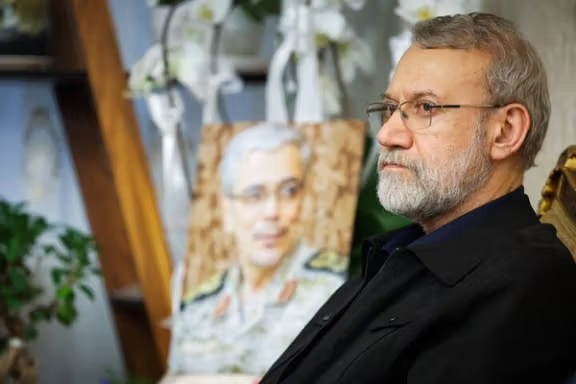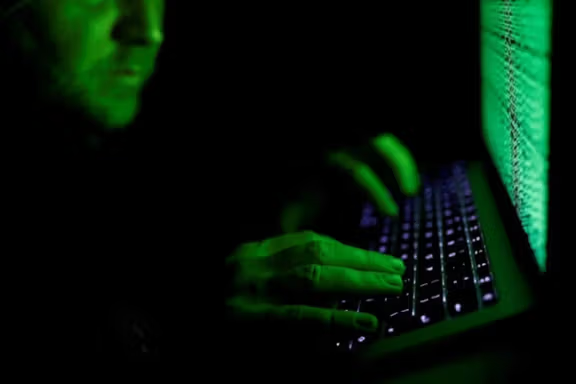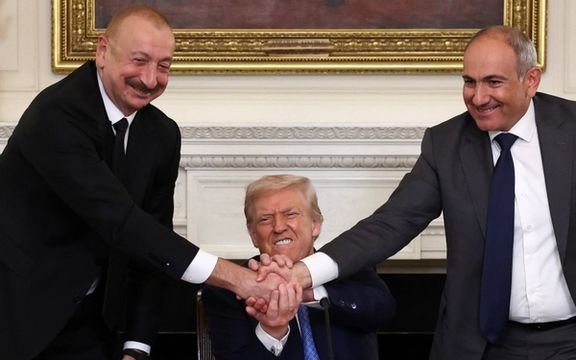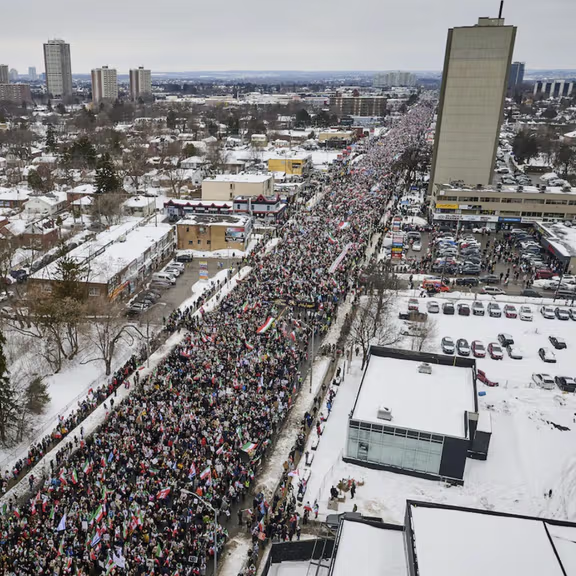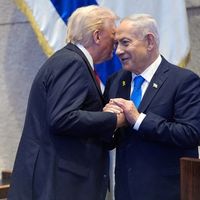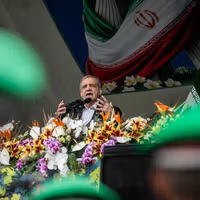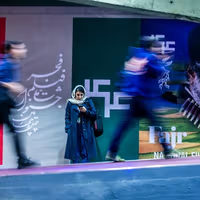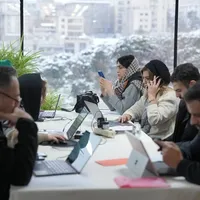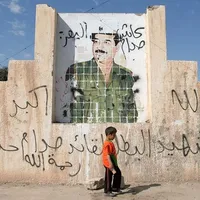Larijani, who also serves as Supreme Leader Ali Khamenei’s personal representative to the council, said he would sign a “bilateral security agreement” with Iraq and meet “various currents” in the country.
“Iran’s approach with neighbors is to consider both the security of Iranians and the security of neighbors,” he told state broadcaster IRIB before departing for Baghdad.
In Iraq, Larijani’s trip comes days after Prime Minister Mohammed Shia al-Sudani reiterated there was “no reason” for weapons to be held outside state institutions, and said he had used a mix of political and military pressure to prevent Iran-aligned armed groups from joining last month’s 12-day conflict between Israel and Iran.
Baghdad says it has thwarted 29 planned attacks by such groups on US bases in the country.
Iraq's political landscape is divided into competing Shia, Sunni, and Kurdish blocs. Recent power shifts have seen Shia factions, such as the Sadrist Movement and the Iran-backed Shia Coordination Framework, gain prominence, though Kurdish and Sunni groups still hold significant roles. Iran has historically backed Shia militias, some of which are now part of Iraq's security apparatus through Popular Mobilization Forces.
Trip to Lebanon
Larijani’s three-day trip will also take him to Lebanon, where he said he would deliver unspecified messages to officials and discuss expanding trade ties.
“National unity in Lebanon must be preserved in all conditions. Lebanon’s independence is important to us and we will help to maintain it,” he said.
The visit comes amid renewed friction between Tehran and Beirut over the Lebanese government’s plan to disarm Iran-backed Hezbollah.
Lebanon’s foreign ministry last week condemned remarks by Khamenei aide Ali-Akbar Velayati rejecting the disarmament decision, calling them “flagrant and unacceptable interference” in domestic affairs.
The ministry said Lebanon’s future and political system were matters “decided solely by the Lebanese people” and warned Tehran to “mind its own business.”
Beirut’s cabinet earlier this month instructed the army to draft a plan by year-end to bring all weapons under state control, an implicit challenge to Hezbollah, which has vowed to resist disarmament.
Senior Iranian officials, including Velayati and military commander Iraj Masjedi, have publicly opposed the move, describing it as an American- and Israeli-driven policy that will fail.
Khamenei appointed Larijani to his new role on Thursday, two days after President Masoud Pezeshkian named him as SNSC secretary.
With the appointment, Larijani replaces Ali Akbar Ahmadian both as secretary of the Supreme National Security Council and as one of Khamenei’s two designated representatives to the body. Saeed Jalili, who served as SNSC secretary from 2007 to 2013, is the other representative currently serving in that capacity.
